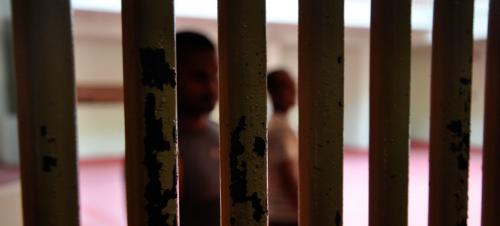UN rights chief decries mass execution of 81 people in Saudi Arabia
The UN human rights chief has condemned the beheading of 81 people by Saudi Arabia during the course of a single day, charged with terrorism-related offences.

A prison cell.
High Commissioner for Human Rights Michelle Bachelet urged the authorities in a statement released following Saturday’s mass execution, to “bring the country’s counterterrorism laws fully into line with international standards”.
The beheadings exceeded the total of 67 executions that reportedly took place in the country during the whole of last year.
Unfair trials
Among those put to death on 12 March, Ms. Bachelet said she understood that 41 were Muslims from the Shiite minority who had taken part in anti-government protests in 2011-12, calling for greater political participation.
Another seven were Yemenis and one was a Syrian national.
“Our monitoring indicates that some of those executed were sentenced to death following trials that did not meet fair trial and due process guarantees, and for crimes that did not appear to meet the most serious crimes threshold, as required under international law,” she said.
The High Commissioner also expressed concern that some of the executions appeared to be linked to the on-going armed conflict in Yemen, between Houthi rebels and a Saudi-led coalition, backing the internationally recognized Government forces.
Possible war crimes
Implementing death sentences following trials that do not provide the required “fair trial guarantees” is prohibited by international human rights and humanitarian law and “may amount to a war crime,” the UN rights chief reminded.
Moreover, the death penalty is “incompatible with fundamental tenets of human rights and dignity, the right to life and the prohibition of torture”.
She said that failure to provide relatives with information on the circumstances of their loved ones’ executions “may amount to torture and ill-treatment”.
“Authorities should return the bodies of those executed to their families”, underscored the top UN human rights official.
Wide classification
Ms. Bachelet voiced her concern over the extremely broad definition of terrorism in Saudi legislation, including non-violent acts that supposedly “endanger national unity” or “undermine the State’s reputation.”
“This risks criminalizing people exercising their rights to freedom of expression and peaceful assembly,” she warned.
Despite a global move away from the death penalty, Saudi Arabia is among some 38 countries that continue to implement it.
“I call on the Saudi authorities to halt all executions, immediately establish a moratorium on the use of the death penalty, and commute the death sentences against those on death row,” concluded the High Commissioner.
Source:UN
- 185 reads
Human Rights
Ringing FOWPAL’s Peace Bell for the World:Nobel Peace Prize Laureates’ Visions and Actions

Protecting the World’s Cultural Diversity for a Sustainable Future

The Peace Bell Resonates at the 27th Eurasian Economic Summit

Declaration of World Day of the Power of Hope Endorsed by People in 158 Nations

Puppet Show I International Friendship Day 2020

